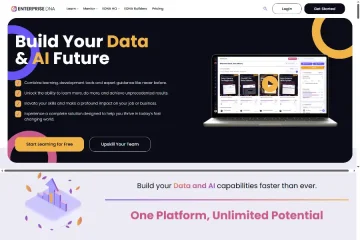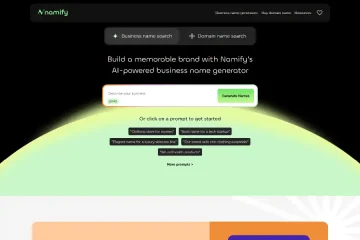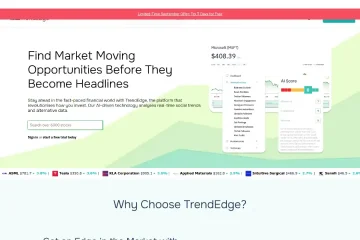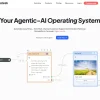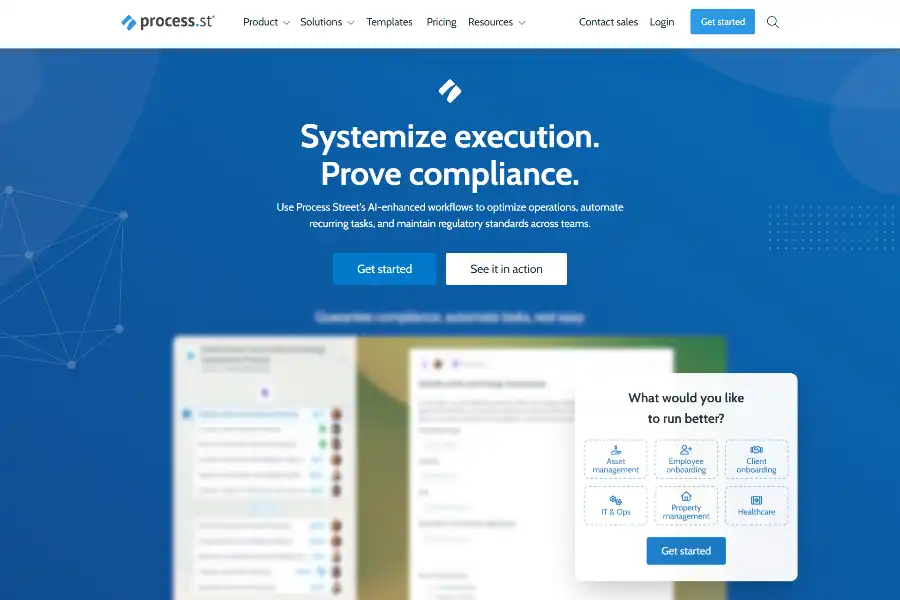
Process Street: The AI-Enhanced Compliance Operations Platform That Transforms How Modern Teams Work
Introduction: From Static Checklists to AI-Driven Compliance
Process Street began as a beautifully simple checklist app, yet today it is an AI-enhanced Compliance Operations Platform trusted by more than one million users in over one hundred countries. While most workflow tools focus on task tracking, Process Street was architected for a higher-stakes mission: enabling organizations to scale repeatable work without sacrificing regulatory rigor. Whether you are onboarding employees in a SOC-2-certified SaaS company, running quarterly SOX controls in a multinational bank, or ensuring HIPAA-compliant patient intake in a tele-health startup, Process Street turns every recurring process into a living, auditable system of record. The platform’s newest layer—Process AI—adds generative workflow creation, intelligent data extraction, and predictive compliance alerts, allowing teams that never spoke “process language” to spin up enterprise-grade workflows in seconds rather than weeks.
Core Architecture & Technical Principles
Under the hood, Process Street is a cloud-native, multi-tenant application deployed on Amazon Web Services (AWS) across three availability zones for 99.99 % uptime. The micro-services stack is containerized with Kubernetes, orchestrated via Terraform, and protected by a zero-trust security model. Three technical pillars distinguish the platform:
AI Workflow Engine
Process AI leverages a fine-tuned large language model (LLM) built on a mixture of OpenAI GPT-4 and proprietary compliance-specific data sets. The model was trained on more than 65 million anonymized workflows and 1.2 billion completed tasks, giving it an uncanny ability to predict next steps, identify missing controls, and suggest conditional logic. When a user types “Employee onboarding for a remote software engineer in Germany,” the engine instantly decomposes the request into 42 templated tasks, assigns risk scores, maps them to GDPR articles, and auto-creates approval gates for IT security and HR legal review.
No-Code Form Builder with Dynamic Branching
Every task can surface rich forms that adapt in real time. A “Collect tax residency certificate” step will morph into a W-8BEN or W-9 form depending on the employee’s country selection. Conditional logic is executed client-side in React, while server-side Node.js services store state in PostgreSQL with row-level security policies.
Compliance Ledger
A cryptographically hashed audit trail sits atop an append-only log powered by Amazon QLDB. Every keystroke, file upload, and electronic signature is time-stamped and tamper-evident, satisfying ISO-27001, SOC-2, HIPAA, GDPR, and SOX evidentiary requirements out of the box.
Feature Deep Dive
Process AI: From Prompt to Workflow in Seconds
Process AI eliminates the blank-canvas problem. Users describe a process in plain English, and the engine returns a fully fleshed workflow including role-based assignments, SLA timers, and policy citations. A risk heat-map highlights steps that regulators scrutinize most. Version control is automatic: each AI suggestion is stored as a Git-style diff so compliance officers can audit changes line-by-line.
Conditional Logic & Dynamic Due Dates
Rules can reference any form field, previous task outcome, or external API call. For example, an insurance claim workflow can branch into “Fast-track settlement” if damage is below $5,000 and the policy has no prior claims. Due dates recalculate dynamically; if a medical device recall is classified as Class I by the FDA, all related tasks are escalated with 24-hour SLAs.
Native Approvals & E-Signatures
Multi-layer approvals mirror real-world authority matrices. CFOs can sign off on vendor invoices from within Slack or Microsoft Teams; their approvals are digitally signed with AWS KMS keys and stored in the Compliance Ledger. Rejection reasons are captured as structured data to feed continuous-improvement loops.
2,000+ Integrations via Zapier, Make, and Native APIs
Process Street is the orchestration layer on top of your existing stack. Salesforce opportunities can trigger client-onboarding workflows; Jira tickets can spawn corrective-action workflows; Snowflake can ingest completion metrics for BI dashboards. OAuth 2.0 scopes are granular, so a Jira integration can read issues but never write to production repos.
Permission Fabric
Role-based access control (RBAC) extends to the field level. A payroll admin can see salary fields in an onboarding form, while an IT admin sees only provisioning tasks. Attribute-based policies can enforce segregation of duties, e.g., the same user cannot both create and approve a vendor record.
Industry Use Cases
Financial Services: SOX & PCI-DSS Compliance
A top-30 U.S. bank replaced 43 legacy spreadsheets with Process Street workflows for quarterly SOX control testing. The AI engine auto-maps each control to the relevant COSO principle and surfaces dormant controls for re-certification. Audit preparation time dropped from 40 hours to 6 hours per cycle, and the external auditor issued a 25 % reduction in testing fees.
Healthcare: HIPAA-Compliant Patient Intake
A tele-mental-health provider scaled from 50 to 500 clinicians without adding administrative headcount. Process Street’s AI-generated intake forms include PHQ-9 depression screening and e-signature capture for informed consent. A custom integration with Epic pushes completed intakes directly into the EMR, reducing manual data entry by 90 %.
Property Management: Turnover & Maintenance
Envy Property Management cut average unit-turn time from 14 days to 7 days. Workflows orchestrate inspections, vendor scheduling, and compliance checks for lead-paint disclosures. Conditional logic triggers EPA documentation only for pre-1978 buildings, saving 1,200 hours of unnecessary paperwork annually.
Technology: ISO-27001 Certification Sprint
A Series-B SaaS startup achieved ISO-27001 in 90 days by importing the ISO-27001 control set from Process Street’s template library. The AI engine cross-referenced each control with existing Jira epics and generated evidence-collection tasks, shrinking consultant fees by $35 k.
ROI & Productivity Metrics
According to aggregated telemetry from 2024 customers:
- Organizations report an average of $1.3 M in annual savings through automation of recurring processes.
- Executives reclaim 10–40 % of their weekly calendar by delegating approvals and status checks to Process Street.
- Process-error rates drop by 40 % within six months of deployment, largely due to enforced conditional logic and mandatory attachments.
- Companies with structured BPM training (enabled by Process Street’s Academy) achieve 2.1× ROI growth compared to peers.
These figures are echoed in public case studies. Salesforce’s Senior Success Consultant Alex Hauer notes that Process Street “delivers cross-functional team collaboration at a scale we couldn’t achieve with documents and emails,” while Colliers’ Head of Technology Services Linda White highlights “consistent results and improved governance” after replacing ad-hoc checklists with AI-enhanced workflows.
Competitive Positioning
In G2’s Winter 2024 Grid for Business Process Management Software, Process Street ranks #1 in “Easiest Admin” and “Best Meets Requirements,” outperforming Monday.com, Asana, and Kissflow. Analyst firm Info-Tech Research Group listed Process Street as an “Exemplar” in the 2024 BPM Emotional Footprint Report, citing user sentiment scores 17 % above the category average. Competitive advantages include:
- Compliance-First DNA: Unlike generic project-management vendors, every feature is mapped to a regulatory framework.
- AI Workflow Generator: No direct competitor offers one-shot prompt-to-workflow creation with embedded policy citations.
- Immutable Audit Trail: Competing platforms either lack QLDB-grade tamper evidence or charge enterprise surcharges for it.
- Transparent Flat Pricing: Mid-market plans start at $1,000 per month for unlimited workflows, compared to six-figure enterprise licenses from legacy BPM suites.
User Feedback & Community
Process Street maintains a 4.7/5 average rating across G2, Capterra, and Software Advice, aggregated from 2,300+ reviews. Users consistently praise the frictionless UX and responsive support. Mary-Frances Lascuola from ERP Suites calls it “great documentation software that keeps getting better,” while Andromeda Technology Solutions’ Anthony Zaragoza describes it as “smart software… always getting smarter.” The Process Street Community Forum has 14 k active members who share templates, API snippets, and best-practice webinars. Monthly “Process Master” awards spotlight power users who contribute innovative workflows, reinforcing a virtuous cycle of peer learning.
Security, Privacy & Certifications
Process Street is SOC-2 Type II certified, HIPAA-ready, and GDPR-compliant. Data residency options include U.S., EU, and soon APAC regions. All data is encrypted at rest with AES-256 and in transit via TLS 1.3. Pen-tests are conducted bi-annually by Bishop Fox, and the latest report is available under NDA. Single-tenant VPC deployments are offered to Fortune 500 clients who require isolated compute.
Implementation Roadmap & Support
Most customers deploy their first workflow within one business day using the template gallery. For enterprise rollouts, Process Street offers a “White-Glove” program that includes a dedicated Customer Success Architect, migration of legacy SOPs, and on-site training. The Process Street Academy provides role-based certification tracks—Process Designer, Compliance Analyst, and API Developer—ensuring internal teams become self-sufficient within 60 days.
Pricing Overview
Process Street uses transparent tiered pricing:
- Startup: $100 per month for up to 5 members, unlimited workflows, and 1,000 AI credits.
- Pro: $415 per month for up to 20 members, advanced integrations, and 10,000 AI credits.
- Enterprise: Starts at $1,100 per month for unlimited members, SSO/SAML, VPC option, and 100,000 AI credits.
Non-profits and educational institutions receive a 30 % discount. A 14-day free trial with full API access is available without a credit card.
Future Roadmap
Process Street’s public roadmap—voted on by customers—reveals three major themes:
- Generative Evidence Collection: AI will auto-screenshot key system states and embed them in the audit trail.
- Process Mining: Integration with Celonis to surface bottlenecks from ERP logs and suggest workflow optimizations.
- Vertical Compliance Packs: Ready-to-deploy workflow libraries for FDA 21 CFR Part 11, FedRAMP, and GxP.
Expect GA releases in Q3 and Q4 2024, aligned with an annual user conference “ProcessCon” in Austin, Texas.
Conclusion: Why Process Street Matters
Process Street is more than a workflow tool; it is a strategic compliance fabric that lets organizations scale without losing operational discipline. By fusing generative AI with a tamper-evident audit ledger, the platform turns every recurring process into a competitive advantage—faster onboarding, fewer errors, bulletproof audits, and measurable ROI. Whether you are a startup chasing your first SOC-2 or a global bank preparing for Basel IV, Process Street offers the rare combination of simplicity for end-users and rigor for regulators. In a digital economy where trust is currency, Process Street ensures that every task executed is also a promise kept.
Visite Porcess Street official website now.

